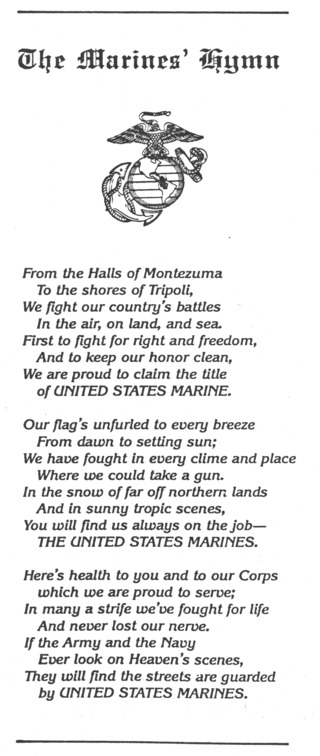In legal discourse, an author is the creator of an original work, whether that work is in written, graphic, or recorded medium. The creation of such a work is an act of authorship. Thus, a sculptor, painter, or composer, is an author of their respective sculptures, paintings, or compositions, even though in common parlance, an author is often thought of as the writer of a book, article, play, or other written work. In the case of a work for hire, the employer or commissioning party is considered the author of the work, even if they did not write or otherwise create the work, but merely instructed another individual to do so.

A copyright is a type of intellectual property that gives the creator of an original work, or another right holder, the exclusive and legally secured right to copy, distribute, adapt, display, and perform a creative work, usually for a limited time. The creative work may be in a literary, artistic, educational, or musical form. Copyright is intended to protect the original expression of an idea in the form of a creative work, but not the idea itself. A copyright is subject to limitations based on public interest considerations, such as the fair use doctrine in the United States.

Donald Allen Wollheim was an American science fiction editor, publisher, writer, and fan. As an author, he published under his own name as well as under pseudonyms, including David Grinnell, Martin Pearson, and Darrell G. Raynor. A founding member of the Futurians, he was a leading influence on science fiction development and fandom in the 20th-century United States. Ursula K. Le Guin called Wollheim "the tough, reliable editor of Ace Books, in the Late Pulpalignean Era, 1966 and '67", which is when he published her first two novels in Ace Double editions.

The Rider–Waite Tarot is a widely popular deck for tarot card reading, first published by the Rider Company in 1909, based on the instructions of academic and mystic A. E. Waite and illustrated by Pamela Colman Smith, both members of the Hermetic Order of the Golden Dawn. Also known as the Waite–Smith, Rider–Waite–Smith, or Rider Tarot, the deck has been published in numerous editions and inspired a wide array of variants and imitations. Estimates suggest over 100 million copies of the deck circulate across 20 countries.

A Creative Commons (CC) license is one of several public copyright licenses that enable the free distribution of an otherwise copyrighted "work". A CC license is used when an author wants to give other people the right to share, use, and build upon a work that the author has created. CC provides an author flexibility and protects the people who use or redistribute an author's work from concerns of copyright infringement as long as they abide by the conditions that are specified in the license by which the author distributes the work.

The Copyright Act of 1790 was the first federal copyright act to be instituted in the United States, though most of the states had passed various legislation securing copyrights in the years immediately following the Revolutionary War. The stated object of the act was the "encouragement of learning," and it achieved this by securing authors the "sole right and liberty of printing, reprinting, publishing and vending" the copies of their "maps, charts, and books" for a term of 14 years, with the right to renew for one additional 14-year term should the copyright holder still be alive.
A work of the United States government is defined by the United States copyright law, as "a work prepared by an officer or employee of the United States Government as part of that person's official duties". Under section 105 of the Copyright Act of 1976, such works are not entitled to domestic copyright protection under U.S. law and are therefore in the public domain.

Morgan Creek Entertainment, LLC is an American film production company, former sales agent and investor, that has released box-office hits including Young Guns, Dead Ringers, Major League, True Romance, Ace Ventura: Pet Detective, The Crush, Robin Hood: Prince of Thieves and The Last of the Mohicans. The studio was co-founded in 1987 by James G. Robinson and Joe Roth. Robinson leads the company as chairman and CEO. His two sons, Brian Robinson and David C. Robinson, run the day-to-day operations. The company name comes from Roth's favorite film, The Miracle of Morgan's Creek. Their most recent film is The Exorcist: Believer, which was released on October 6, 2023.

Ace Books is a publisher of science fiction (SF) and fantasy books founded in New York City in 1952 by Aaron A. Wyn. It began as a genre publisher of mysteries and westerns, and soon branched out into other genres, publishing its first science fiction title in 1953. This was successful, and science fiction titles outnumbered both mysteries and westerns within a few years. Other genres also made an appearance, including nonfiction, gothic novels, media tie-in novelizations, and romances. Ace became known for the tête-bêche binding format used for many of its early books, although it did not originate the format. Most of the early titles were published in this "Ace Double" format, and Ace continued to issue books in varied genres, bound tête-bêche, until 1973.

The Copyright Act of 1909 was a landmark statute in United States statutory copyright law. It went into effect on July 1, 1909. The 1909 Act was repealed and superseded by the Copyright Act of 1976, which went into effect on January 1, 1978; but some of 1909 Act's provisions continue to apply to copyrighted works created before 1978. It allowed for works to be copyrighted for a period of 28 years from the date of publication and extended the renewal term from 14 years to 28 years, for a maximum of 56 years.

S. Fischer Verlag is a major German publishing house, which has operated as a division of Holtzbrinck Publishing Group since 1962. The publishing house was founded in 1881 by Samuel Fischer in Berlin, but is currently based in Frankfurt am Main, and is traditionally counted among the most prestigious publishing houses in the German-speaking world.
Copyright law of Ireland is applicable to most typical copyright situations. In most cases, copyright protection expires 70 years after the death of the author/creator. Irish law includes a provision for "fair dealing," similar to that used by other countries.

Dante's is a nightclub and live music venue in Portland, Oregon. The venue, located along West Burnside Street and owned by Frank Faillace, hosts a variety of acts ranging from burlesque to rock music.

Attribution, in copyright law, is acknowledgment as credit to the copyright holder or author of a work. If a work is under copyright, there is a long tradition of the author requiring attribution while directly quoting portions of work created by that author.

Sweat of the brow is a copyright law doctrine. According to this doctrine, an author gains rights through simple diligence during the creation of a work, such as a database, or a directory. Substantial creativity or "originality" is not required.
Crown copyright is a type of copyright protection. It subsists in works of the governments of some Commonwealth realms and provides special copyright rules for the Crown, i.e. government departments and (generally) state entities. Each Commonwealth realm has its own Crown copyright regulations. There are therefore no common regulations that apply to all or a number of those countries. There are some considerations being made in Canada, UK, Australia and New Zealand regarding the "reuse of Crown-copyrighted material, through new licences".

The public domain (PD) consists of all the creative work to which no exclusive intellectual property rights apply. Those rights may have expired, been forfeited, expressly waived, or may be inapplicable. Because no one holds the exclusive rights, anyone can legally use or reference those works without permission.

The Copyright Act of 1976 is a United States copyright law and remains the primary basis of copyright law in the United States, as amended by several later enacted copyright provisions. The Act spells out the basic rights of copyright holders, codified the doctrine of "fair use", and for most new copyrights adopted a unitary term based on the date of the author's death rather than the prior scheme of fixed initial and renewal terms. It became Public Law number 94-553 on October 19, 1976, and went into effect on January 1, 1978.
The copyright law of the United States grants monopoly protection for "original works of authorship". With the stated purpose to promote art and culture, copyright law assigns a set of exclusive rights to authors: to make and sell copies of their works, to create derivative works, and to perform or display their works publicly. These exclusive rights are subject to a time and generally expire 70 years after the author's death or 95 years after publication. In the United States, works published before January 1, 1929, are in the public domain.

The "Marines' Hymn" is the official hymn of the United States Marine Corps, introduced by the first director of the USMC Band, Francesco Maria Scala. Its music originates from an 1867 work by Jacques Offenbach with the lyrics added by an anonymous author at an unknown time in the following years. Authorized by the Commandant of the Marine Corps in 1929, it is the oldest official song in the United States Armed Forces. The "Marines' Hymn" is typically sung at the position of attention as a gesture of respect, akin to a national anthem. However, the third verse is also used as a toast during formal events, such as the birthday ball and other ceremonies.













